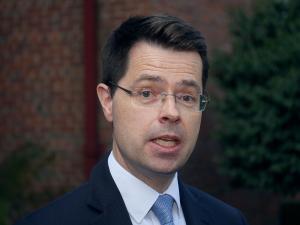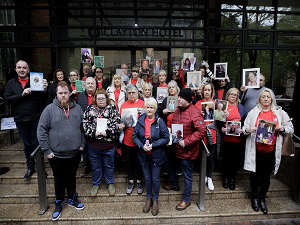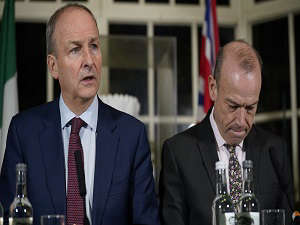
Press Association
Failure to strike a powersharing deal in Northern Ireland would have "profound and serious" implications, the British Government has warned.
Last-ditch negotiations led by the British and Irish governments on restoring a coalition ministerial executive at Stormont extended late into the night on Tuesday and are continuing on Wednesday.
The parties have until 4pm on Thursday to nominate ministers or face the prospect of some version of direct rule from Westminster or yet another assembly election.
Northern Ireland Secretary James Brokenshire told MPs: "Our focus is on seeing that an Executive is restored and I have been clear on not wanting to pre-empt what may happen should that not be the case.
"Obviously there would be profound and serious implications in that context."
He said he would work with all parties to see that the issues were considered carefully.
The two largest in Northern Ireland, the Democratic Unionists and Sinn Fein, remain at loggerheads over key issues like introducing an Irish Language Act to officially protect the minority tongue's use.
While it would be a major confidence-building measure for nationalists, DUP leader Arlene Foster has promised an act would not happen under her watch.
One alternative could be a law also covering the use of Ulster-Scots.
Irish is already used in settings like schools funded by the education system.
Sinn Fein has accused the DUP of refusing to budge on any of the substantive issues at the heart of the crisis.
The DUP urged the republican party to stop indulging in "high-wire acts" and get down to the job of delivering for the people.
Sinn Fein party chairman Declan Kearney hinted movement was possible on one precondition - its opposition to Mrs Foster returning as Stormont first minister while a public inquiry into a botched green energy scheme is ongoing - if the DUP gave ground on other matters.
DUP negotiator Edwin Poots suggested a "parallel process" could be initiated where an Executive is formed while talks on the outstanding issues continued.
Mr Kearney claimed the DUP was not prepared to move on republican demands for a stand-alone Irish Language Act, the introduction of same-sex marriage in Northern Ireland and a specific bill of rights for the region.
The peace process is littered with examples of apparently firm political deadlines being broken.
While Mr Brokenshire stressed the cut-off point was set in law, he did not definitively rule out another extension.
Mrs Foster was forced from office in January when Sinn Fein's then deputy first minister, the late Martin McGuinness, quit in protest at the DUP's handling of the RHI - a scheme that left the administration facing a £490 million overspend.
His move triggered a snap assembly election in March.
A number of attempts to restore powersharing between the five main parties following that poll floundered, with three UK Government deadlines for a deal having already been missed.


 Teenage girl killed in road crash named as Kamile Vaicikonyte
Teenage girl killed in road crash named as Kamile Vaicikonyte
 Covid-19 inquiry ‘an opportunity for candour’ from Stormont leaders
Covid-19 inquiry ‘an opportunity for candour’ from Stormont leaders
 UK and Irish ministers to meet amid row over migration
UK and Irish ministers to meet amid row over migration
 Three men set to go on trial for murder of journalist Lyra McKee
Three men set to go on trial for murder of journalist Lyra McKee
 Swann refuses to rule out resigning if budget is not changed
Swann refuses to rule out resigning if budget is not changed